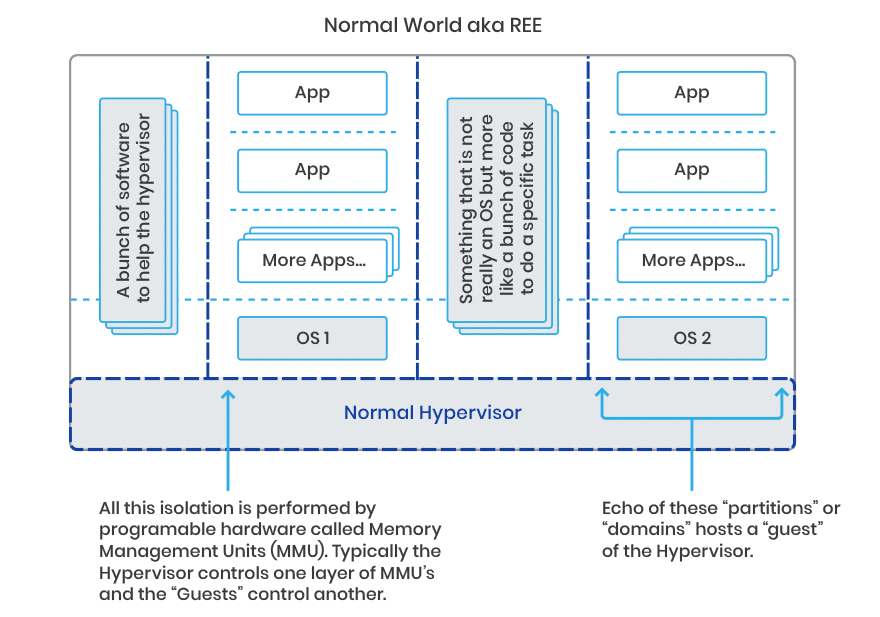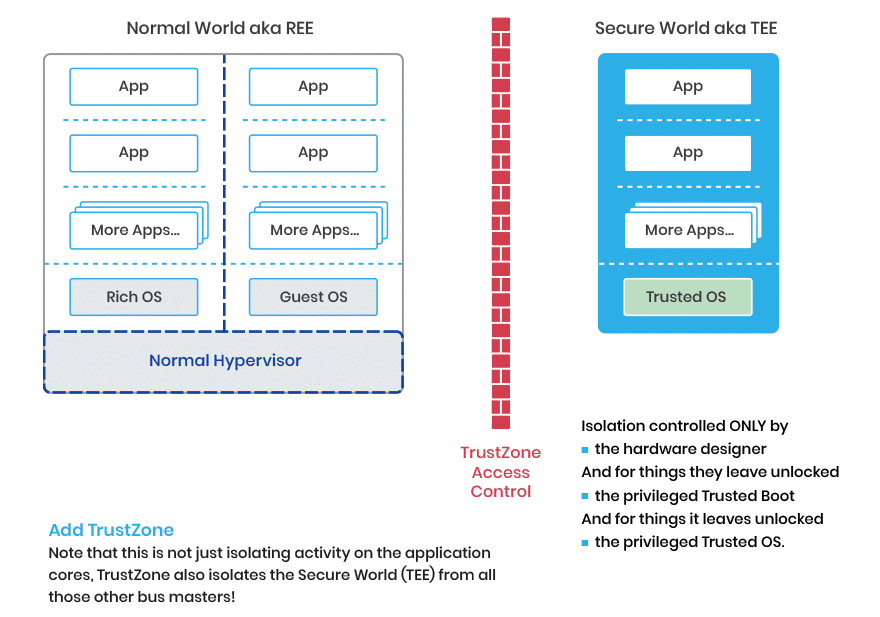Antwort What is the safest hypervisor? Weitere Antworten – What is the most secure hypervisor

Xen Project sets itself apart as the safest and most reliable hypervisor to use for security-first environments because of its architecture, advanced security features, and an industry-leading security disclosure process.Limit Access to Hypervisor Host Management: Only authorized individuals should have access to the hypervisor host management. To prevent unwanted access, organizations should have strong authentication measures in place, such as multi-factor authentication.A type 2 hypervisor, or hosted hypervisor, interacts with the underlying host machine hardware through the host machine's operating system. You install it on the machine, where it runs as an application. The type 2 hypervisor negotiates with the operating system to obtain underlying system resources.

Is Hyper-V safer than VMware : VMware Security vs Hyper-V Security. VMware is an enterprise-grade virtualization solution, and naturally, its security features are more robust. However, Hyper-V also provides robust security features.
Are hypervisors safe
Hypervisors that run directly on physical hardware are also highly secure. Virtualization mitigates the risk of attacks that target security flaws and vulnerabilities in OSes because each guest has its own OS.
What is the risk of hypervisor : Since hypervisors allow a system administrator to create and monitor VMs on their hardware, the entire system could be at risk if an attacker compromises the hypervisor. Threat actors do this by exploiting outdated hypervisor software or by infecting a machine with malware.
Type I hypervisors are also more secure than type II hypervisors. Hosted hypervisors, on the other hand, are much easier to set up than bare metal hypervisors because you have an OS to work with. These are also compatible with a broad range of hardware.

Type 1 hypervisors provide excellent security by invoking high levels of logical isolation between VMs — no resources or services are shared between VMs. A security breach in one VM doesn't place other VMs at risk. Type 2 hypervisors offer good logical isolation as well, but the shared host OS poses a common threat.
Is Hyper-V a security risk
The safety of the Hyper-V environment requires a complex set of measures, including but not limited to constant monitoring of services and equipment. All your virtual machines (VMs) and resources are dependent on the hypervisor. If someone takes control of it, you can say goodbye to all your data.If an operating system is running under a virtual machine and it's infected by a virus, is it possible for the virus to spread to the host machine Short answer: Yes. There only has to be a bug in the hypervisor code then the virus can escape the VM, infect the hypervisor then the whole machine is compromised.Hypervisor security is the process of ensuring the hypervisor — software that enables virtualization — is secure throughout its lifecycle. Common security practices for hypervisors include limiting users in a local system, reducing attack surfaces and keeping systems updated.

Type 1 hypervisors are highly efficient because they have direct access to physical hardware. This also increases their security, because there is nothing in between them and the CPU that an attacker could compromise.
What are the disadvantages of Type 2 hypervisors : Disadvantages:
- Lower performance than with Type-1, because of resource sharing with other applications and using hardware resources via the host OS.
- Less secure and stable. Crash of any other application may crash host OS.
- Poor on additional features.
Is Proxmox a type 1 hypervisor : Both Proxmox and KVM are type 1. Type 2 hypervisors are executed on the host operating system using VirtualBox or VMware Workstation or similar tools. Type 1 hypervisors are more reliable and have better performance since there is direct access to the hardware.
Can viruses escape Hyper-V
If an operating system is running under a virtual machine and it's infected by a virus, is it possible for the virus to spread to the host machine Short answer: Yes. There only has to be a bug in the hypervisor code then the virus can escape the VM, infect the hypervisor then the whole machine is compromised.

The primary user concern is the host operating system (OS) and network hardware: you simply cannot maintain security on a proper level with only one product active. The safety of the Hyper-V environment requires a complex set of measures, including but not limited to constant monitoring of services and equipment.Hyper-V never actually isolates your environment and virus/malware can still penetrate through Hyper-V VM to your host PC.
Is VMware more secure than hypervisor : VMware Security vs Hyper-V Security. VMware is an enterprise-grade virtualization solution, and naturally, its security features are more robust. However, Hyper-V also provides robust security features.



